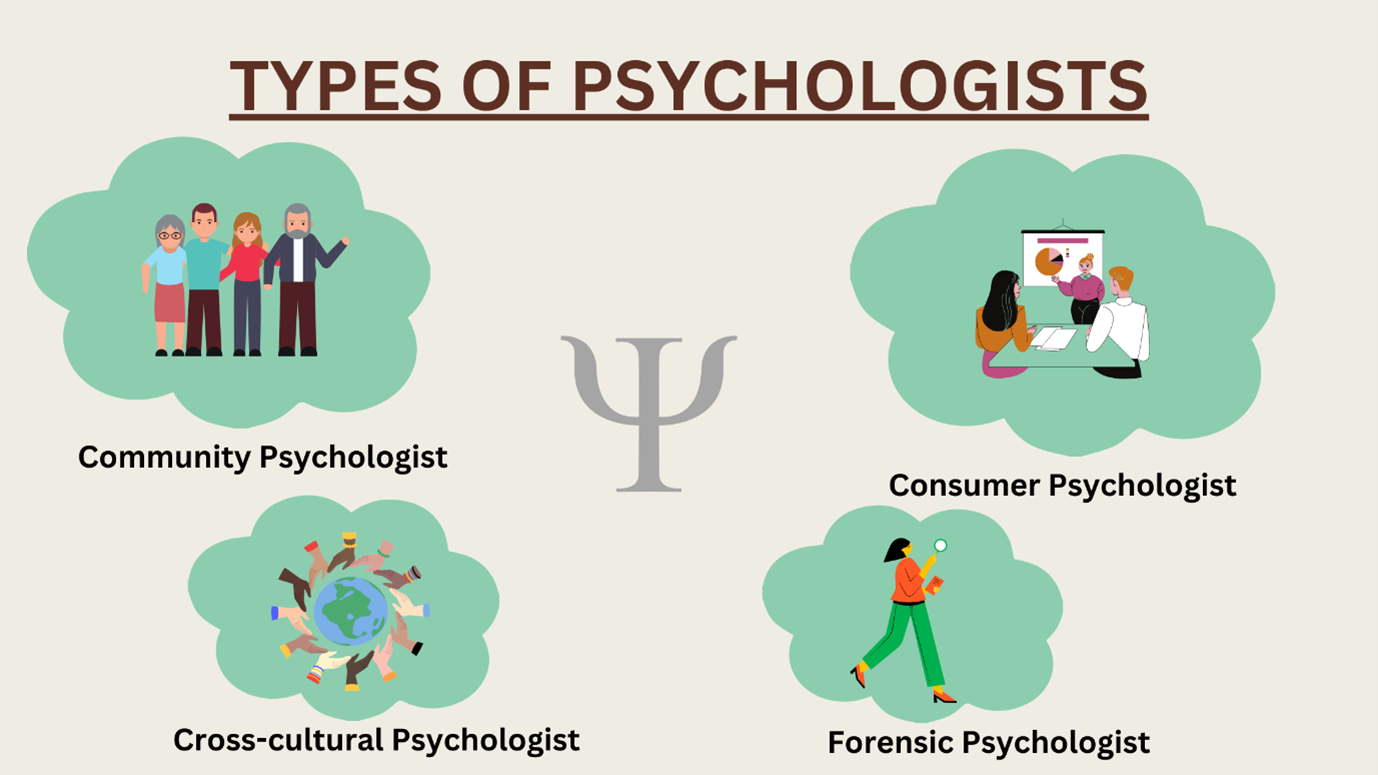Psych Treatment: A Comprehensive Overview to Methods and End Results

Cognitive-Behavioral Therapy
Cognitive-Behavioral Treatment (CBT) is a widely made use of psychotherapeutic method that concentrates on identifying and changing dysfunctional thinking and habits patterns. Developed in the 1960s by Aaron T. Beck, CBT integrates cognitive and behavioral concepts to address different psychological wellness problems, consisting of depression, anxiousness, and stress-related conditions.
Methods such as cognitive restructuring, exposure therapy, and skill-building workouts are typically used. Cognitive restructuring involves tough and changing adverse thought patterns, while direct exposure treatment aims to reduce anxiety and stress and anxiety with gradual direct exposure to feared items or scenarios.
Evidence-based research sustains the efficiency of CBT for a vast array of psychological conditions - Best Psychologist in Delhi. Its emphasis on skill procurement and self-help techniques empowers clients to proceed progression independently after therapy wraps up. The flexibility and performance of CBT have actually made it a cornerstone in contemporary psychotherapeutic method
Psychodynamic Strategies
Rooted in the very early concepts of Sigmund Freud, psychodynamic approaches focus on checking out the subconscious mind and its influence on behavior and emotions. These techniques intend to reveal surprise ideas and sensations that might be driving maladaptive behaviors and psychological distress. Central to this approach is the concept of inner conflict, usually stemming from unresolved past experiences, particularly those from childhood.
Therapists utilizing psychodynamic techniques use numerous vital approaches, consisting of cost-free organization, where individuals are motivated to speak easily to disclose subconscious material, and dream evaluation, which analyzes the unrealized web content of desires. In addition, the expedition of transference and countertransference characteristics within the restorative connection is essential. These interactions can give understandings into the patient's inner globe and relational patterns.
Psychodynamic therapy is generally longer-term contrasted to other modalities, supplying a detailed and deep understanding of the individual's subconscious. Research study indicates that it can be specifically efficient for complex psychological health issues, such as individuality disorders and persistent anxiety. By cultivating self-awareness and emotional understanding, psychodynamic therapy seeks to bring subconscious material to consciousness, enabling individuals to attain significant and enduring change in their lives.
Humanistic Strategies
Building on the structures laid by psychodynamic techniques, humanistic techniques supply a distinct viewpoint focused on individual prospective and self-actualization. Coming from the mid-20th century, these strategies focus on the inherent benefits and development possibility of individuals, highlighting an all natural sight of human experience. Key numbers such as Carl Rogers and Abraham Maslow have actually considerably influenced this restorative strategy, which incorporates methods like client-centered therapy and Gestalt treatment.
Client-centered therapy, created by Rogers, plays a critical function in humanistic techniques. It counts on the specialist providing a setting of genuine favorable regard, empathy, and harmony. This cultivates a safe room for clients to explore their feelings and experiences without judgment, facilitating self-discovery and personal growth. The therapist's role is more of a facilitator than an authority, motivating clients to harness their internal resources for recovery.
Gestalt treatment, another vital humanistic technique, emphasizes present minute recognition and the integration of mind and body. By concentrating on the "below and currently," customers get greater insight right into their existing feelings and behaviors. Techniques such as role-playing and led visualization are frequently employed to aid customers get a deeper understanding of themselves, ultimately leading to boosted self-awareness and satisfaction.
Integrative Therapies
Integrative treatments represent a synthesis of numerous healing methods tailored to meet the special requirements of each customer. This technique acknowledges the intricacy of human psychology and the diverse nature of mental health and wellness issues. By incorporating aspects from various institutions of psychiatric therapy-- such as cognitive-behavioral therapy (CBT), psychodynamic treatment, and humanistic methods-- integrative treatments use an even more versatile and holistic treatment standard.
Practitioners of integrative therapy examine each client's certain needs, signs, and individual history to create a customized treatment strategy. This individualized strategy enhances the capacity for healing success by dealing with the source of psychological distress and promoting general health. Techniques may consist of mindfulness workouts, cognitive restructuring, and psychological handling, each selected to target different aspects of the client's problems.
Furthermore, integrative therapies emphasize the therapeutic connection, viewing the client-therapist bond as a vital element of efficient treatment. This connection promotes a helpful atmosphere where clients feel safe to explore her explanation and resolve their problems. The flexibility of integrative treatments makes them appropriate for a broad series of conditions, including anxiousness, clinical depression, injury, and interpersonal difficulties, thereby increasing their applicability and effectiveness in varied scientific settings.

Gauging Therapy Outcomes
Examining the efficiency of psychiatric therapy is crucial for both clinicians and customers to ensure that the therapy is yielding the preferred outcomes. To accomplish this, various approaches and tools are used to measure treatment end results systematically. Standardized analysis tools, such as the Beck Depression Stock (BDI) and the Generalized Anxiousness Problem 7 (GAD-7), offer measurable information on signs and symptom severity and changes in time.
In enhancement to standard devices, qualitative approaches like customer self-reports and clinical interviews offer useful insights right into the individual experiences and regarded progress of clients. On a regular basis set up assessments, normally at the start, navel, and end of treatment, aid in tracking the trajectory of renovation or recognizing locations needing modification.
Outcome measurement is not limited to symptom reduction; it also encompasses functional renovations in life, such as better interpersonal partnerships, raised job productivity, and enhanced total wellness. Modern developments in digital health have actually introduced mobile applications click now and on the internet platforms that promote real-time surveillance and comments, even more refining the evaluation process.
Inevitably, a detailed method to gauging therapy outcomes makes certain that restorative treatments work, efficient, and customized to meet the specific requirements of customers, consequently optimizing the total therapeutic experience.
Verdict
Psychotherapy supplies a diverse array of methods aimed at addressing certain mental health and wellness concerns and improving total well-being. Cognitive-Behavioral Treatment and psychodynamic techniques target inefficient ideas and unconscious impacts, specifically. Humanistic techniques concentrate on individual growth and self-actualization, while integrative treatments incorporate multiple approaches for customized treatment strategies. Evaluating therapy results via standard assessments and qualitative techniques guarantees an extensive understanding of performance, my review here ultimately directing customers towards sustaining mental wellness enhancements.
From the organized method of Cognitive-Behavioral Therapy (CBT) to the deep expedition of the subconscious in psychodynamic therapy, each method brings distinct advantages. Its emphasis on skill acquisition and self-help techniques empowers customers to proceed development separately after treatment ends (Best Psychologist in Delhi). Secret figures such as Carl Rogers and Abraham Maslow have actually significantly affected this restorative approach, which incorporates approaches like client-centered treatment and Gestalt therapy

Comments on “Leading Factors to Consult the Best Psychologist in Delhi for Your Emotional Health and wellness”